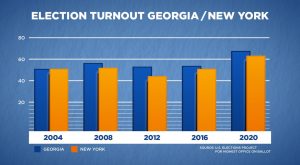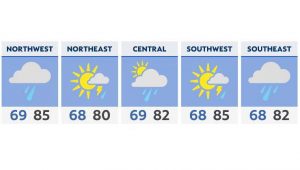COLUMBUS, Ohio — The Federal Reserve raised its key interest rate by three quarters of a percent on Wednesday. The move was an attempt to corral inflation, which is at a 40-year high.
What You Need To Know
- Federal Reserve raised its key interest rate 0.75 percent on Wednesday
- That rate increase causes other rates to rise, such as credit card and mortgage rates
- Financial advisor Darren Lundy expects rates to begin falling in 2023
While interest rates have already impacted the housing market, this new increase could have an effect on credit cards and car loans.
According to Bankrate’s website, the average credit card rate has risen 2.47% since the beginning of the year.
Darren Lundy said that the best advice for consumers right now is to not accumulate new debt.
“People have a lot of money in their pockets right now and there’s not enough goods and that causes prices to increase,” said Lundy, who has his own financial advising firm. “Basically so the consumer, it’s going to cost you more to borrow money for a house.”
This has been felt by people like Jennifer Gilronan and her family. They’ve been on the hunt for a home and have experienced the consistent rise in home interest rates that now sit at an average of 7.08%.
“It takes your top of the line budget down because the mortgage payment will be more,” said Gilronan, who intends to close on a house on Nov. 16.
Lundy said that while the Federal Reserve figures out how to cool down the market, people should wait to buy a home, car or open a new credit account.
“We all have a belief that once they begin to see inflation come down then they will stop raising the interest rates so high, I think that’s the advice I would give for someone trying to borrow money right now. If you can wait, to hold off until we can get more economic information,” said Lundy.
Lundy said that he expects that this step is more directed to inflation rather than curbing a recession and predicts rates will decline starting in 2023.




